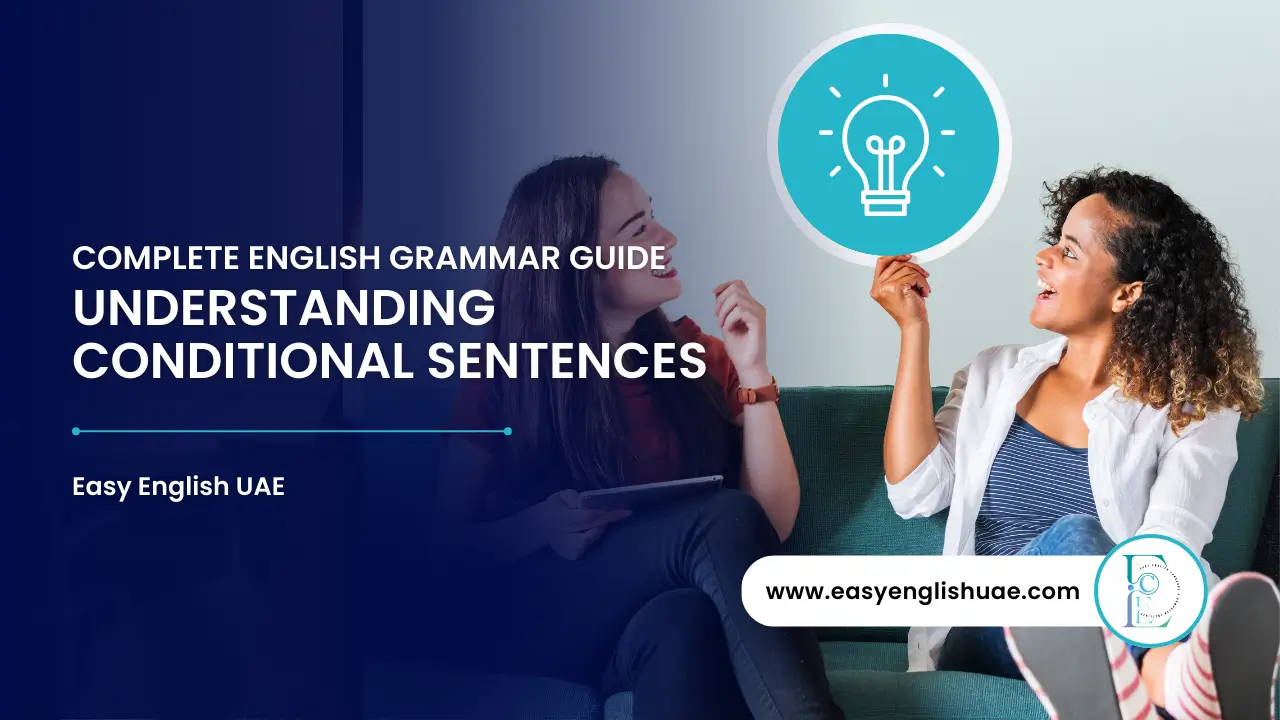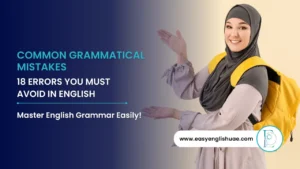

Welcome to our comprehensive guide on conditional sentences! Whether you’re enrolled in an English grammar conditional sentences course in Abu Dhabi or studying independently, this complete resource will transform your understanding of one of English grammar’s most versatile structures. Understanding conditional sentences is essential for expressing possibilities, hypothetical situations, and cause-and-effect relationships in English communication.
A conditional sentence is a grammatical structure that expresses a condition and its potential result or consequence. The conditional sentence definition can be understood as a sentence that shows an action or outcome that depends on a specific condition being met. These sentences typically contain two parts: the condition (if-clause) and the result (main clause).
What is conditional sentence in practical terms? It’s a way to express “if this happens, then that will happen” relationships. These structures are fundamental to conditional sentence english grammar and appear frequently in both spoken and written English.
Understanding the 4 types of conditional sentences with examples is crucial for mastering English grammar. Each type serves a different purpose and follows specific conditional sentence english grammar rules.
Zero conditional sentences express general truths, scientific facts, or situations that are always true. These sentences describe what happens when certain conditions are met, without exception.
Structure: If + present simple, present simple
Examples of zero conditional sentences:
These examples demonstrate how zero conditional sentences express universal truths and natural laws.
First conditional sentences show the expected outcome or result of an action in the future. They express real possibilities and likely scenarios.
Structure: If + present simple, will + base verb
First conditional sentences examples:
The first conditional sentences structure follows the pattern: if + present simple tense, and future simple tense as the result.
The second conditional is used to imagine present or future situations that are unrealistic, hypothetical, or unlikely to happen.
Structure: If + past simple, would + base verb
Second conditional examples:
The structure of the second conditional follows: if + past simple tense, and “would” + base verb.
The third conditional expresses unreal situations in the past – things that didn’t happen but we can imagine what would have occurred if they had.
Structure: If + past perfect, would have + past participle
Third conditional examples:
The structure of the third conditional is: if + past perfect tense, and “would have” + past participle.
Here are 10 examples of conditional sentences covering all types for comprehensive understanding:
Understanding conditional sentence english grammar rules is essential for proper usage. Here are the key rules to remember:
Let’s examine conditional sentences type 1 2 3 in detail:
Example: If I had known, I would have helped.
Practice is essential for mastering conditional sentences. Here are conditional sentences exercises with answers to test your understanding:
For students pursuing conditional sentence english grammar Abu Dhabi studies, understanding these structures is particularly important for:
A comprehensive conditional sentence english grammar worksheet should include:
Understanding conditional sentence english grammar examples helps in various real-life situations:
Beyond the basic four types, advanced learners should understand:
When learning conditional sentence english grammar, avoid these common errors:
Understanding conditional sentences is fundamental to expressing complex thoughts and relationships in English. Whether you’re taking an English grammar conditional sentences course in Abu Dhabi or studying independently, mastering these structures will significantly enhance your communication abilities.
From zero conditional sentences that express universal truths to third conditional statements that explore unreal past situations, each type serves a unique purpose in English communication. The 10 examples of conditional sentences we’ve explored demonstrate the versatility and importance of these structures in daily English usage.
Remember that the 4 types of conditional sentences with examples each follow specific patterns and rules. Regular practice with conditional sentences exercises with answers will help solidify your understanding and improve your fluency. Use conditional sentence english grammar worksheet materials to reinforce your learning and track your progress.
For students in Abu Dhabi, mastering these conditional sentence english grammar rules opens doors to academic success, professional advancement, and effective cross-cultural communication. Continue practicing these structures, and you’ll find that conditional sentences become a natural and powerful tool in your English language arsenal.
Keep studying, practicing, and applying these concepts in your daily communication. The investment you make in understanding conditional sentences will pay dividends in your overall English proficiency and communication effectiveness!



WhatsApp us